(August 1, 2007)
In my cross country drive, I yawned a bit at Illinois and its endless cornfields. Or was that Missouri? The miles were an even blend, and traveling inward was more interesting, if no more fun, than traveling outward. Somewhere along there I even wept for a hundred miles or so. No special reason. A kind of welling up of collected pain and woes and hurts from all my many lives lived and now behind me. A release. A silent sobbing into the asphalt stretching out endlessly behind me, endlessly before me. And done.
And then I enjoyed the softly rolling plains of Kansas. Those gentle curves of green and gold soothe away the last rawness of various stresses. Green uninterrupted, only the occasional shrub or cluster of trees, but otherwise only curves, like Mother Earth lying down and resting, her wide hip and rounded breast and luscious thigh the length of the horizon. Here and there, cows, sometimes all brown ones, like milk chocolate, sometimes black ones, like licorice beans, moving slowly across the land, noses to the ground, munching. I liked Kansas. I could understand life in Kansas. My nerves settled into a semblance of contentment.
But then, oh then, Colorado! At first it is all buttery gold, almost like a desert, and no sign of mountains. I've visited this state many, many times over my lifetime, ranging from early childhood, to taking my own child to Boulder to release her into her college life at University of Colorado-Boulder for her freshman year. I chugged through once on the California Zephyr, a railway trip from Kalamazoo to San Francisco, and when the train pulled to a stop at the Union Station in Denver, I remember peering through the iron fence at the soaring mile-high city, fireworks exploding overhead in celebration of July 4th of that long ago summer, and I longing to go, explore, immerse. But the train was steaming and chugging along, and we, the passengers, could only stare through the iron fence.
I walked along the inside of that black iron fence today. The highway had led me into the city without a hitch. It was as if my car, a little rental Chevy Cobalt, had a mind of its own, and it knew exactly where we should go. Turn here, right there, left here, and a parking spot opened up before me, and the first Denverite appeared to greet me. The Tattered Cover, I said. Near here? Oh yes, he smiled, quite near. And pointed but two blocks down, and even from where I stood, I could see the red-brown brick, the banner waving atop the steep steps up: my favorite bookstore. I recalled it from years ago, that year my daughter and I came to Denver to explore her new home. I never forgot. A writer never forgets an excellent bookstore.
You know that feeling? When every detail clicks into place, like a puzzle solving itself. A path opens, a gate unlocks, a door beckons, and a threshold must be crossed. I walked into the Tattered Cover, and it was just as I remembered it. No chain store, this. Their logo: "Independent Bookstores for Independent Minds." Worn wooden floors, shelves in every which direction, fresh coffee brewing, random soft chairs and plush but worn sofas, no matching patterns or designs. Not in furnishings nor in the people wandering the store. Young and old, business man or gray hippy woman or executive woman or eager child. Yet silence reigns. Every pair of eyes is mesmerized by the written page. Every gaze scanning titles, reading words. Readers settle into favorite corners and turn the pages, lost to the world.
Soon, so am I. For surely they knew I was coming. On the very first table is the very book I have been seeking. A new novel by Annie Dillard, The Maytrees. For it was Annie's voice that burst forth from the radio of my rental car when I had just picked it up at the Kalamazoo airport. Serendipity? A good omen, surely, that my cross country first companion had the voice of my favorite writer. Yet I had missed most of the interview. Heard only the ending, as she spoke of this being her very last novel, for her fingers did not work anymore, could not write, could not type, had not, however, yet tried the chisel…
I pick up the book and hold it to me. I am Home, I thought. I am among friends. I wandered the bookshelves, tables, and aisles. Everywhere books, and nowhere the type of books I avoid in chain bookstores. Surely the Tattered Cover owners have seen my reading wish list. I come upon Orhan Pamuk's Snow, and I clutch that to me, too. Then Mary Oliver's latest poetry collection. Then Barbara Kingsolver's Animal, Vegetable, Mineral. Oh, I must stop. My new richer salary isn't quite here yet. I find a soft armchair in a corner on the second floor and settle in to read. The chair fits me and I fit it. The books fit my hand. I read a bit of one book, then another, then a third and fourth. I must choose. I must. Oh. I. Must. All right, then, so be it, and I make my way back to the counter with Annie Dillard, my saving grace for this journey, and Orhan Pamuk, because the first page of his novel has so captured my instant attention that I am now haunted.
Lunch beckons, and the bistro I choose is nearly empty, because my stomach is still on Michigan time, and the residents of Denver have already eaten and returned to their offices. Michael has the luxury of waiting on only me, and he brings me the local microbrew that he insists I will love – and I absolutely do – and so, having earned my trust, I allow him to choose the rest of my meal, too. I put fingers to lips and roll my eyes with culinary pleasure when he comes by again to inquire if his choices are satisfactory. He laughs and recommends the bread pudding speckled with chocolate bits, and I moan with longing, but must pass. Must. Pass. But I quietly promise myself: this will be my reason to return. Always leave something behind, a reason to come back.
I walk the city and realize by all the passing smiles on local faces that I am, huh, smiling widely myself. It is an overheated 95 degrees today, and I never smile on such scorchers. Indeed, I can feel my light shirt sticking to me, sweat curling loose tendrils of my gathered up hair, but I am so pleased at the sights of Denver, the brick walks, the historic district, the rusty metal bison sculptures, the soaring skyscrapers with old town tucked against them, that my love is unabated. I have walked into Writer Square, after all, and what do I find in the center of the square but Tewksbury & Co. Premium Tobacconist. As managing editor of The Smoking Poet, I decide this does indeed qualify as a writing tool, and in I go. A row of wooden cigar store Indians greet me. I finger the price tags. The cigar store proprietor comes over to chat me up about such fine relics, and I do not argue, only knock my head to one side and say: someday, someday. Yes, someday, when The Smoking Poet has a cigar lounge to match the literary ezine. But for now, we talk favored smokes, and I breathe deep in the humidor, nostrils filling with the aromas of fine cigars, and I choose La Gloria Cubana in a natural wrapper for my celebratory welcome to the mountains, and two elegant boxes of long cedar matches. I thank the proprietor for the advice to visit Eads News & Smoke Shop in Boulder, promise solemnly to do so, and then reenter the heat of the day.
More little shops. More gifts. I purchase a pair of Navajo artisan earrings for myself, two colorful little turtles, recalling a book I recently read that spoke of turtles as mascots of living a life of balance in courage and care. Consider the turtle, who keeps under a thick shell a most tender being, not easily harmed for its protective shell but no less tender beneath it, who cannot take a step forward without sticking out his neck first. This store proprietor senses my enjoyment of the turtle as symbol and tells me how the Native Americans saw the turtle as a symbol of long life. He offers a matching necklace, a carved turtle on a black leather cord. No, I shake my head, but then, yes. My son collects turtles, I say, perhaps… and he grins ear to ear and gives me a deep discount, an irresistible bargain for earrings and necklace, too, and I throw in a shot glass of Denver, and we are doing business.
Evening in Boulder, and I settle into the luxury of a hotel room, bubble bath and fine smoke, and open the novel by Annie Dillard: "The Maytrees were young long ago. They lived on what still seems antiquity's very surface. It was the tip of Cape Cod, that exposed and mineral sandspit…"
Tonight, then, Cape Cod via Annie, but tomorrow… the mountains of Colorado. It's all uphill from here.
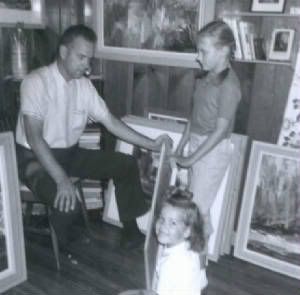
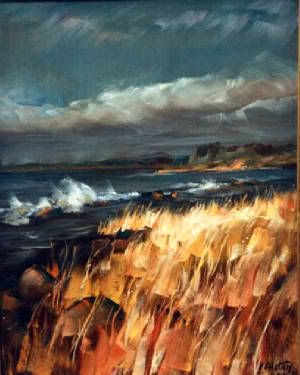 ">
">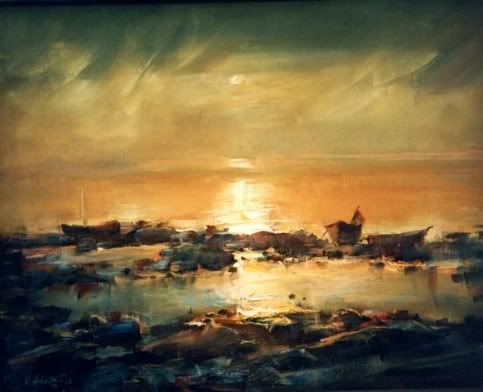 ">
"> ">
">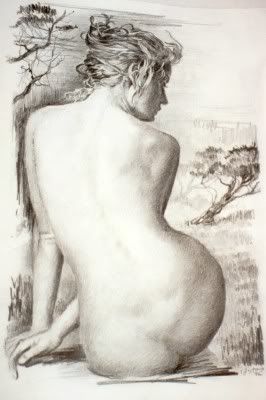 ">
"> ">
">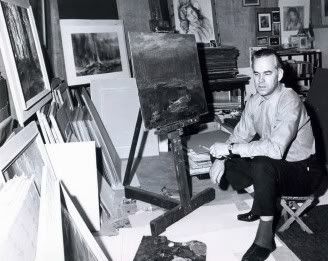 ">
">